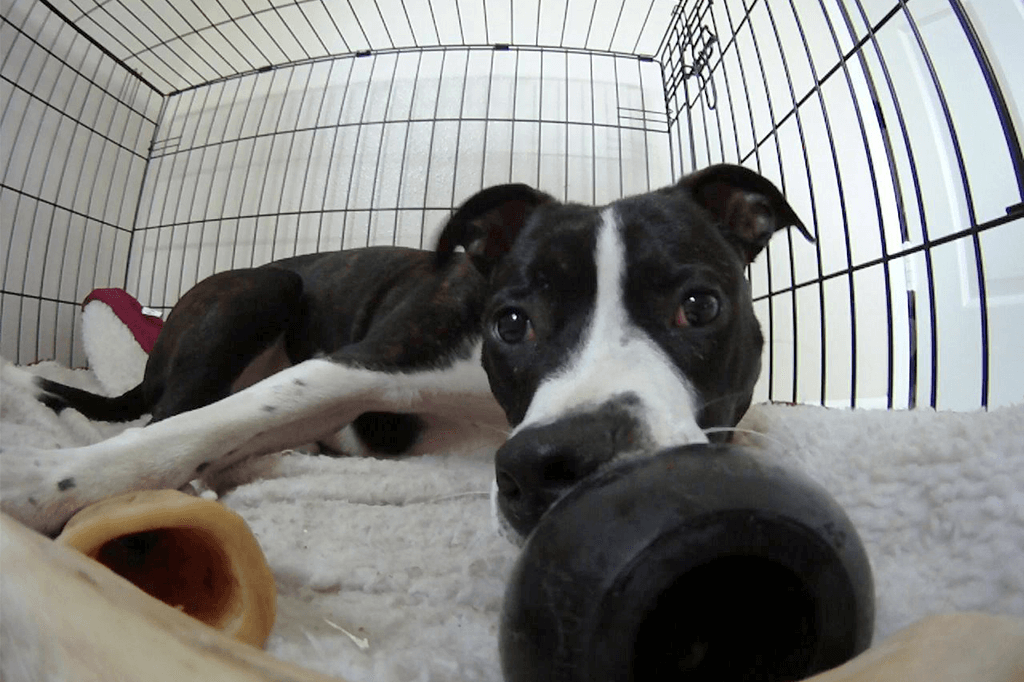Do You Make These 4 Mistakes When You Stop Your Barking Dog?
If you’ve ever lived next door to someone who has a barking dog, then you know how absolutely annoying it can be. And if you’ve ever tried to train a dog to stop barking, you also know how much of a challenge it is. So you might have more sympathy for your neighbor with a barking dog!
One of the more common training points that frustrates dog owners is loud, annoying barking. As a dog owner, you probably know that barking is a natural reaction that dogs have. They bark when they are afraid, seeking attention, trying to play, or alerting you to something that isn’t right. Barking, whining, howling, and growling are all common forms of communication that dogs use. But you can teach your dog that there are better ways of communicating with you.
When you first notice that incessant barking is turning into a habit, it is best to address the situation right away. Even before it gets worse. Some dog owners who want to keep their dogs from barking actually end up making the problem worse with certain unhelpful behaviors. These are common mistakes that should be avoided at all costs when working to train your dog to stop barking.
There are 4 common mistakes that most dog owners tend to do. Here are some details of what NOT to do when you have trouble with a barking dog:
Don’t Misunderstand Your Dog’s Motivation
If you don’t make an effort to try to figure out why your dog is barking you’re much less likely to get him to stop. These are some common reasons that your dog may be yipping or yapping away without ceasing.
- Physical need (cold, heat, hunger, thirst, or exercise)
- Improper confinement, restrictive tethering, lack of shelter
- Fear or feeling unsafe (exposure to another dog, mailman, garbage truck, etc.)
- Isolation (dogs are social creatures and need “friends”, human or canine)
- Working to be the “Alpha” with owner or with another dog
- Simple curiosity
- Lack of self-control
- Genetics (some dog breeds are simply more prone to barking than others)
Just like parents seek to do with crying babies, the first thing to discover in order to stop a barking dog is to find out what it needs. This can be a fairly simple process of elimination. For instance, first consider if all his physical needs are met (food, water, shelter, and exercise) . Then consider what types of emotional needs he might have that are going unmet. If he barks out of fear when he encounters other dogs, help him to overcome it by making him meet calm, well-behaved dogs. This will show him that it’s safe to meet other dogs, relieve his fears, and reduce his need to bark. If your dog is looking for attention, teach him that you’ll ignore barking by leaving the room. Then show him that quiet, positive behavior is the best way to be rewarded with attention.
Barking often comes with other annoying behaviors such as jumping, yanking on the leash, and trying to get away. Address the core issue of the problem first. Then you’ll not only keep your dog quiet, but you’ll likely be able to quash other negative behaviors as well.
Don’t Yell At Your Barking Dog
Using a loud voice to yell at your barking dog is counterproductive. In fact, it may be the very worst thing you can do! If your dog is barking and you start yelling, you are just telling him that you are now in some sort of a yelling contest. He’ll only be motivated to bark more. The better response would be to use one phrase such as “quiet” or “calm” and speak it quickly and firmly (without yelling!) so he knows that you mean business. If you use a sticky sweet voice then you will confuse your dog into believing that he is in charge because he is louder. Of course, once you get him to stop barking, it’s critical to praise your dog immediately.
Don’t Give Comfort
If you give your dog comfort when he barks, you are rewarding his bad behavior. Calmly saying “thank you” or “yes, I hear you” in a regulated tone may get your dog to calm down and stop barking. Don’t speak harshly or too sweetly, and avoid sounding insecure. Your calm tone will remind your dog that there is nothing to fear. Another option is to use an isolation zone that will help your dog realize he isn’t going to get what he wants by barking. But only when he stops barking, he will be free to join you again.
Don’t Offer Attention
If your dog is seeking attention, then the very worst thing you can do is to reward the barking by giving in to his demands. If your dog is barking while you eat, you certainly should not reward him by giving him scraps from the table. If your dog is barking to get attention, simply get up and walk away. This is the very opposite of what he wants. If your dog barks when he is excited because he wants to go on a walk, make him wait calmly before you leave to show him that calm behavior is what you expect. Anytime your dog is calm and not barking, feel free to reward his positive, calm behavior with praise, playtime, a treat, or a walk.
Training a dog to refrain from barking is easiest done at the beginning, rather than trying to help your dog unlearn a bad habit. Even so, if you are firm and careful, paying attention to what motivates your dog to bark, you can certainly teach your dog to be calm and quiet. You’ll be happier, your dog will be happier—and your neighbors will be happier!



